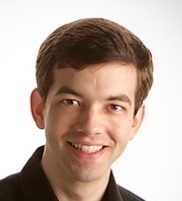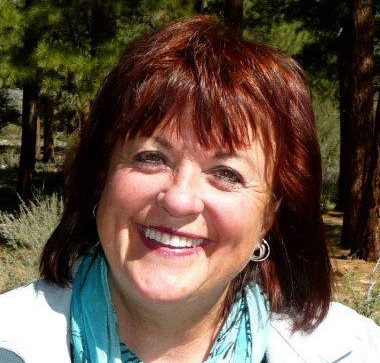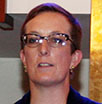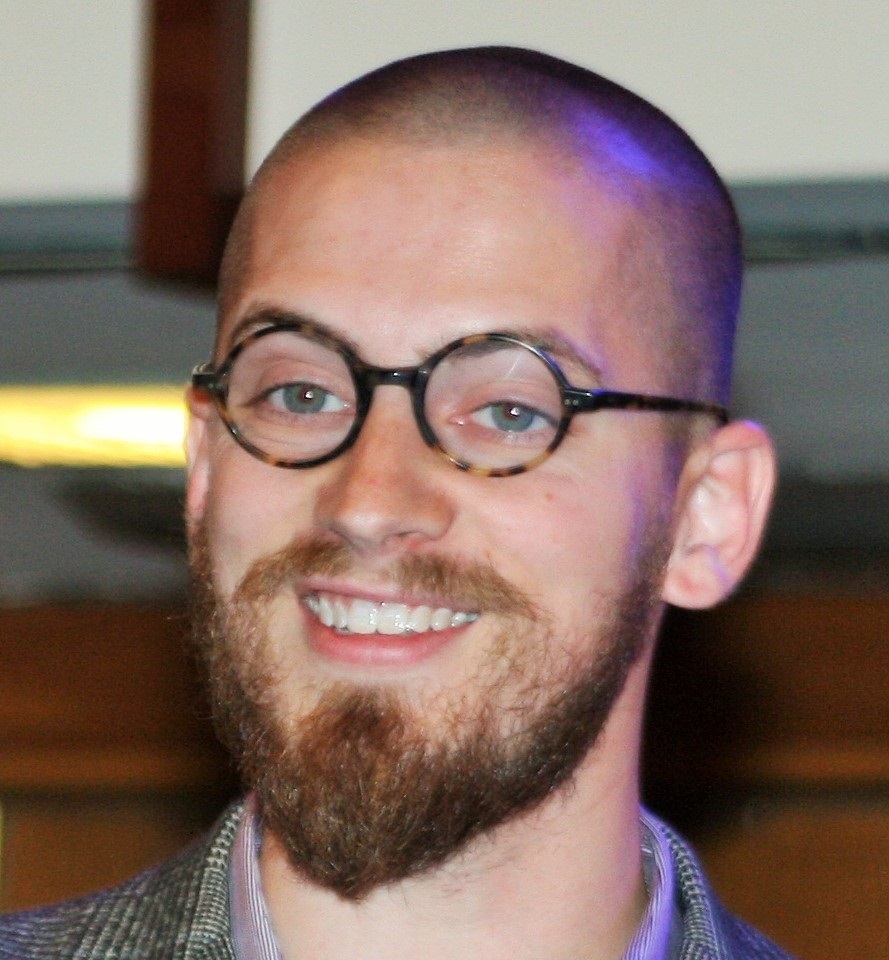By Bob Allen
Pro-LGBT Christians attending this week’s Southern Baptist Convention conference on sexuality said they disagreed with much of what they heard in messages from the platform but were encouraged by the tone and their reception at the Oct. 27-29 gathering in Nashville, Tenn.
 “They’ve been very cordial with me, and oftentimes even more than cordial in terms of a real openness to listen and develop relationships,” author and LGBT activist Matthew Vines said of fellow attenders of the conference on The Gospel, Homosexuality, and the Future of Marriage sponsored by the SBC Ethics and Religious Liberty Commission.
“They’ve been very cordial with me, and oftentimes even more than cordial in terms of a real openness to listen and develop relationships,” author and LGBT activist Matthew Vines said of fellow attenders of the conference on The Gospel, Homosexuality, and the Future of Marriage sponsored by the SBC Ethics and Religious Liberty Commission.
“To me, that made it absolutely worth coming here,” said Vines, author of God and the Gay Christian and founder of the Reformation Project, a grassroots effort to support and affirm LGBT people in all areas of church life.
Vines is planning a conference next week in Washington with Baptist speakers including David Gushee, an evangelical ethicist who recently announced he is getting off the sidelines to campaign for LGBT equality; Allyson Robinson, thought to be the first transgender person ordained by a Baptist church to the gospel ministry; and Danny Cortez, whose “third way” approach of neither condemning nor affirming homosexuality got his church kicked out of the Southern Baptist Convention.
Vines, whose book is subtitled “The Biblical Case in Support of Same-Sex Marriage,” said he heard “mixed messages” from the platform, with some speakers denouncing “reparative therapy” that is supposed to change sexual orientation and others referring to ex-gays cured from homosexuality.
“There were some mixed messages, certainly, but within those mixed messages there were baby steps toward humanization,” Vines said.
Vines did take exception to a broad declaration that “the gospel is at stake” in the debate over homosexuality and same-sex marriage.
“That really sounds like an incredibly low view of Christ’s atoning work on the cross,” he said. “Because if anything that we do can nullify the good news that Christ died and rose again for our sins, then doesn’t that significantly undermine God’s work in the atonement?”
“The gospel is never at stake, because we are not God and we don’t control a salvific event that has already happened that we can’t stop,” Vines said. “You can say the integrity of our gospel message is at stake, how people understand the gospel is at stake, whether or not people are in right relationship with God is at stake, but the gospel itself is never at stake unless you just have an incredibly low view of the atonement, and I think people should be pressed on that a little more.”
 Kathy Baldock, executive director of Canyonwalker Connections, a group she formed to encourage straight evangelicals like herself to build bridges with the LGBT community, said the conversation about sexual issues in churches is changing as parents of gay children previously isolated in their communities are discovering one another through social media.
Kathy Baldock, executive director of Canyonwalker Connections, a group she formed to encourage straight evangelicals like herself to build bridges with the LGBT community, said the conversation about sexual issues in churches is changing as parents of gay children previously isolated in their communities are discovering one another through social media.
“They used to be so isolated, but now because of Facebook they are joined together,” Baldock said. “They’re being supported by other parents and educated, so they are starting to stand up in their churches and saying: ‘Can we have this conversation? This is my church home. This is my child. I don’t really want to abandon either, but I pick my child. I pick the gospel and pick my child.’ So grassroots changes are happening quite a bit.”
Drawn heavily from groups like the New Calvinism and Council for Biblical Manhood and Womanhood, conference speakers granted no credence to the dissenters’ view that it’s possible to be both a faithful Christian and involved in a committed, monogamous relationship with a partner of the same sex.
 While disappointed about that, Robin Lunn, executive director of the Association of Welcoming Baptists, said she left the conference feeling optimistic.
While disappointed about that, Robin Lunn, executive director of the Association of Welcoming Baptists, said she left the conference feeling optimistic.
“I feel like there have been some really, really major shifts that have been messaged,” she said. “The messaging about reparative therapy being wrong, the apologies that have come from the platform, I take them as sincere.”
“You don’t turn the ship in a day,” Lunn said. “I see the ship turning in a different way.”
Having gone through the long family struggle over homosexuality in the American Baptist Churches USA, Lunn said she understands that for denominational leaders much is a stake.
“I understand and have deep empathy for what’s at stake institutionally,” she said. “I keep reminding my sisters and brothers on the inclusive side, you need to pray for these people who are struggling and have compassion as they try to figure out how they’re going to live through deconstructing their worldview.”
 Jeff Hood, a graduate of Southern Baptist Theological Seminary who now ministers at Cathedral of Hope in Dallas, billed as the nation’s largest church made up primarily of LGBT members, said he detected among a reported 1,300 attendees an underlying fear caused by rapidly changing moral dilemmas that their parents and grandparents never had to face.
Jeff Hood, a graduate of Southern Baptist Theological Seminary who now ministers at Cathedral of Hope in Dallas, billed as the nation’s largest church made up primarily of LGBT members, said he detected among a reported 1,300 attendees an underlying fear caused by rapidly changing moral dilemmas that their parents and grandparents never had to face.
Conference speakers included both people formerly involved in same-sex relationships who are now in a heterosexual marriage and others who say their orientation hasn’t changed but they choose to remain single and celibate. Hood said what he found missing was discussion about the impact of someone coming out has on families.
“What do you do with the couples who have been together for 20, 30, 40 years who have four or five kids?” Hood asked. “Do you ask them to break down and send the kids into foster care? You talk about the moral fabric of a nation, the consequences of that are terrifying.”
“They don’t know what to do with this,” Hood said. “They’ve never experienced it. They can prance out here as many people as they want to who say I’m ex-gay or I’m this or I’m that, but look at the families. I feel like that’s the hinge on which the decision turns, because there’s no denying that it exists.”
Previous stories:
Seminary grad outs ‘closets’ in Baptist life
Speakers say holiness, not heterosexuality, goal of outreach to gays
